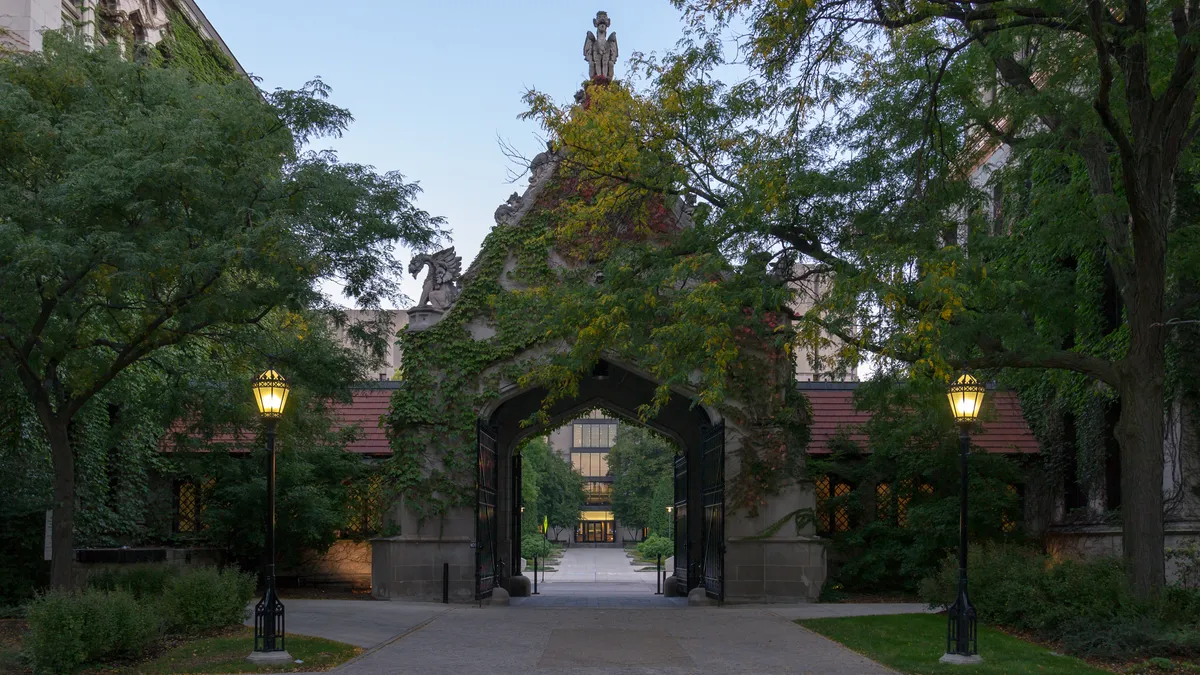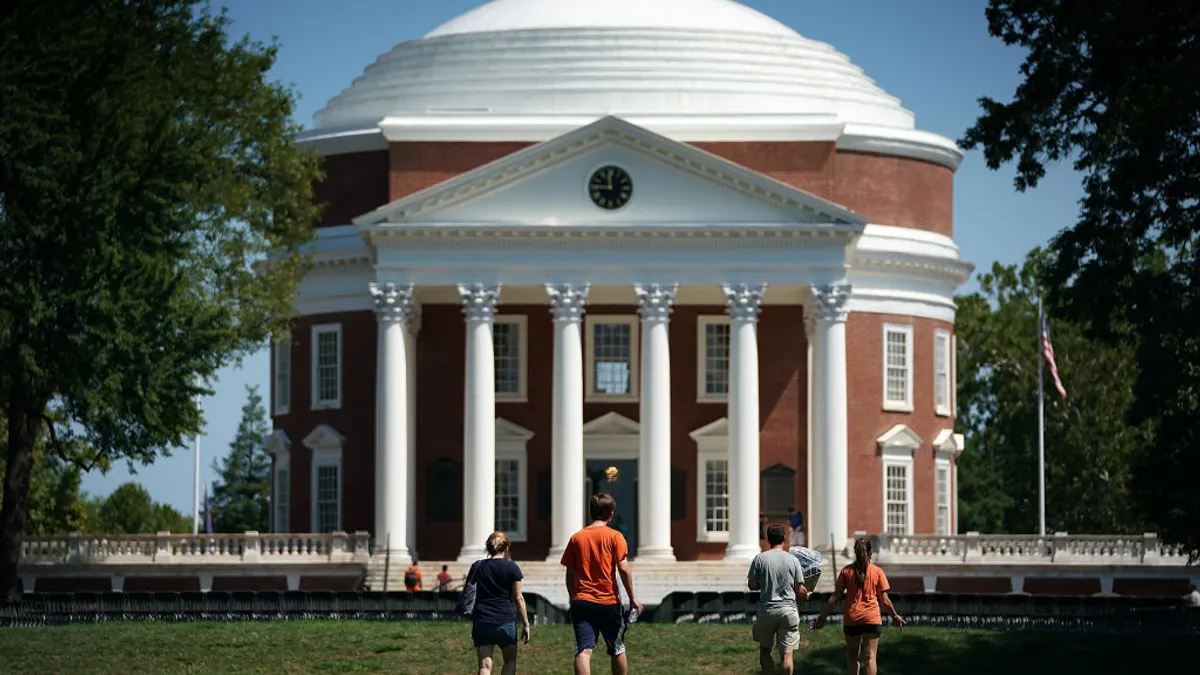Dive Brief:
- During a visit to Education Dive's office Tuesday, Fielding Graduate University President Katrina Rogers and Vice President for Strategic Initiatives Orlando Taylor said college administrators must enhance students' access to the STEM pipeline while looking ahead toward jobs of the future to determine what types of skills students may need.
- Taylor said college leaders should be thinking about "a new kind of America in the global context," asking forward-looking questions like "what does a scientist look like?" and "what types of problems in your community would you like to see solved?" He also said administrators need to consider how to get answers from diverse perspectives to drive research and student goals in positive ways.
- Rogers said leaders must ponder what types of jobs may develop as automation gains steam, with particular emphasis on the kinds of tasks only humans can perform. Skills like thinking critically, working collaboratively and showing empathy will always require a human touch, and the onus is on higher ed leaders to help students develop those traits alongside technical skills.
Dive Insight:
Statistics from McKinsey Global Institute show that around 46% of all workplace activities could become automated by existing technology. In 2014, almost half of experts surveyed by the Pew Research Center said they saw a future where "robots and digital agents have displaced significant numbers of both blue- and white-collar workers," though they still have faith "human ingenuity will create new jobs, industries and ways to make a living" — a reality that speaks directly to Rogers' point that higher education leaders need to consider how to steer their graduates in that direction.
Already, institutions are developing programs to stay ahead of automation's pace while offering students a chance to work on the human-level skills that are still essential to the workforce. For example, The Atlantic showcases Henry Ford College, where students “learn to learn” — engaging in a number of exercises with different machines, because “as more jobs become automated, companies are looking for employees who can essentially manage the machines doing the work.” The article points out what’s required of graduates is the ability to figure out how to discuss, collaborate on and solve complicated technical problems.
Other colleges are partnering with tech companies to give students in-demand skills. For instance, Eastern Washington University adopted courses from Microsoft's Professional Program in Data Science, which allowed it to develop a degree program data analytic that offers exercises in critical thinking as well as technical training.





